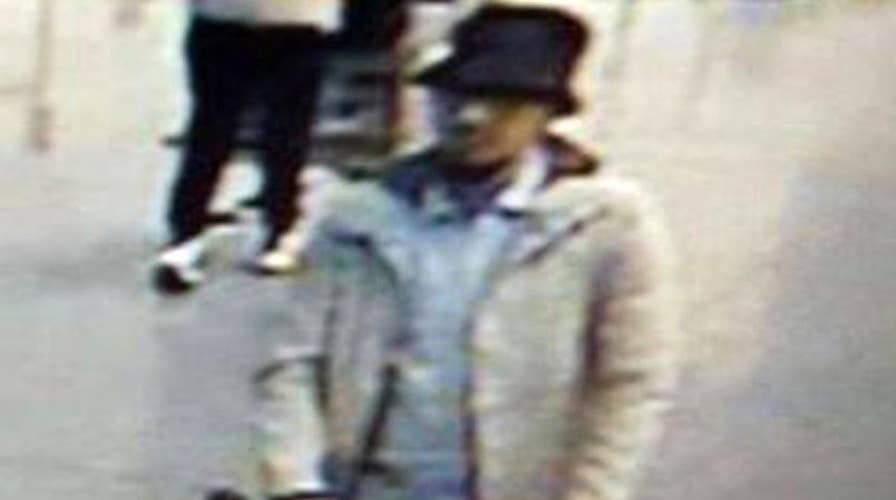Brussels attack's 'man in the hat' caught?
Mohamed Abrini, believed an accomplice of suicide attackers at Belgium's Airport bombing last month and the Paris massacre in November, was arrested in a terror sweep. FSN's Kevin Ozebek takes a closer look for 'On the Record'
The terror group that carried out the March suicide bombings at an airport and subway station in Brussels originally planned to launch a second attack on France, Belgium’s Federal Prosecution Office said Saturday.
The office said in a statement that the terrorists were “surprised by the speed of the progress in the ongoing investigation” and decided to rush an attack on Brussels instead. Two suicide bombers killed 16 people at a Brussels Airport on March 22. A subsequent explosion at Maelbeek subway station killed another 16 people the same morning.
Investigators have found intimate links between the cell behind the Brussels attacks and the group that killed 130 people in Paris on Nov. 13.
The prosecutor’s statement confirmed what many suspected: the series of raids and arrests in the week leading up to the Brussels attacks – including the capture of key Paris attacks fugitive Salah Abdeslam – pushed the terrorists to action.
The allegation that the killers in Brussels planned a rerun of the Paris attacks comes a day after Belgian authorities charged four men with participating in "terrorist murders" and the "activities of a terrorist group" in relation to the Brussels attacks.
They included Mohamed Abrini, who they said had been identified as the "man in the hat" spotted alongside the two suicide bombers who blew themselves up at Brussels Airport.
“He explained having thrown away his (explosive) vest in a garbage bin and having sold his hat afterward,” the prosecutor’s office said Saturday.
Surveillance footage has also placed Abrini in the convoy with the attackers who headed to Paris ahead of the Nov. 13 massacre.
Abrini was a childhood friend of Brussels brothers Salah and Brahim Abdeslam, both suspects in the Paris attacks, and he had ties to Abdelhamid Abbaoud, the Paris attackers' ringleader who died in a French police raid shortly afterward. Brahim Abdeslam blew himself up in the Paris bombings while Salah Abdeslam was arrested in Brussels on March 18 — four days before the attacks there — after a four-month manhunt.
Abrini's fingerprints and DNA were not only in a Renault Clio used in the Paris attacks but also in an apartment in the Schaerbeek neighborhood of Brussels that was used by the airport bombers. Abrini was also believed to have traveled to Syria, where his younger brother died in 2014 in the Islamic State's Francophone brigade.
He traveled multiple times to Birmingham, England, last year, meeting with several men suspected of terrorist activity, a European security official has told The Associated Press.
The other suspects charged Saturday were identified as Osama Krayem, Herve B. M. and Bilal E. M.
Krayem is known to have left the Swedish city of Malmo to fight in Syria.
The Associated Press contributed to this report.









































